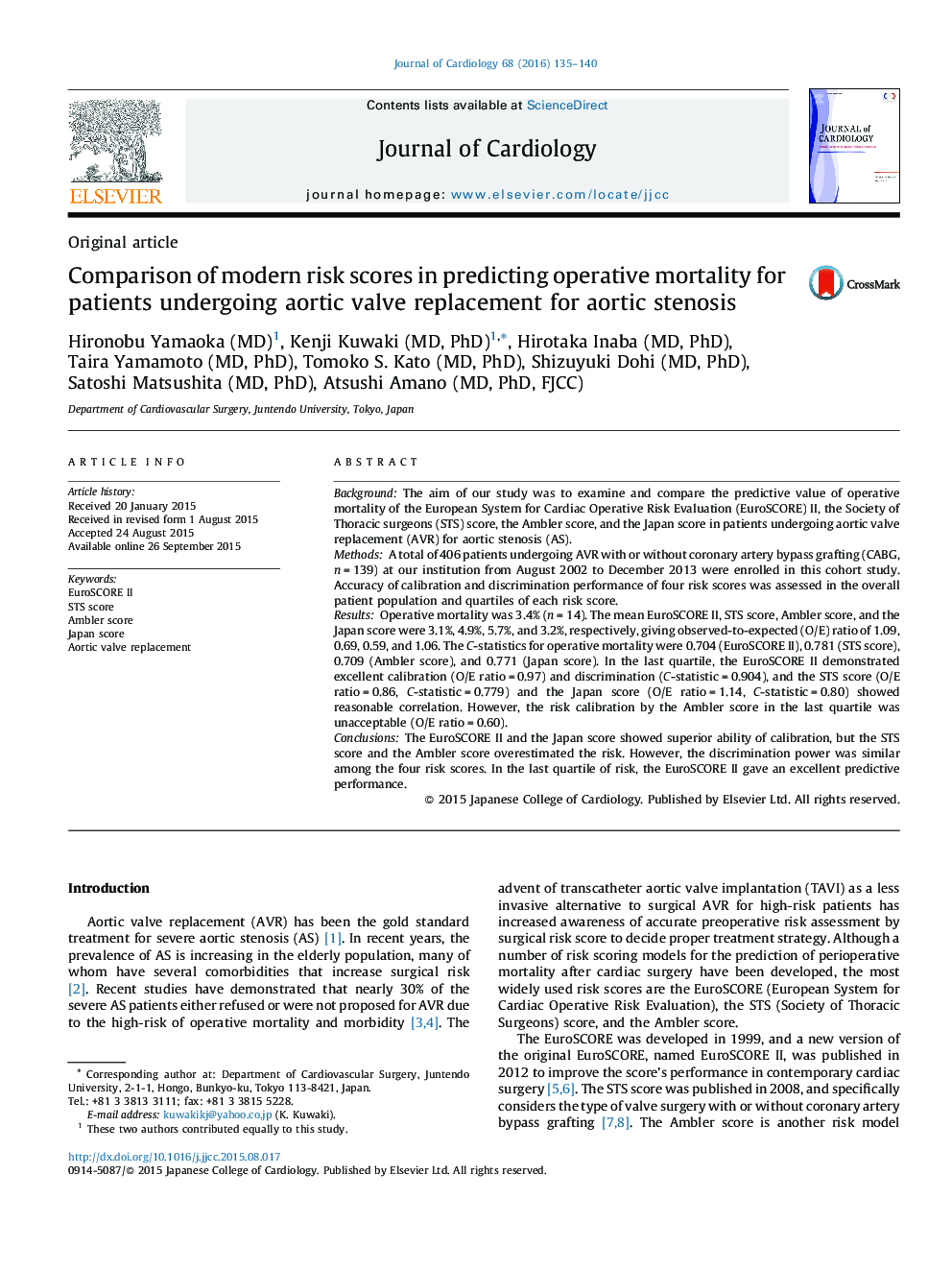| Article ID | Journal | Published Year | Pages | File Type |
|---|---|---|---|---|
| 2962705 | Journal of Cardiology | 2016 | 6 Pages |
BackgroundThe aim of our study was to examine and compare the predictive value of operative mortality of the European System for Cardiac Operative Risk Evaluation (EuroSCORE) II, the Society of Thoracic surgeons (STS) score, the Ambler score, and the Japan score in patients undergoing aortic valve replacement (AVR) for aortic stenosis (AS).MethodsA total of 406 patients undergoing AVR with or without coronary artery bypass grafting (CABG, n = 139) at our institution from August 2002 to December 2013 were enrolled in this cohort study. Accuracy of calibration and discrimination performance of four risk scores was assessed in the overall patient population and quartiles of each risk score.ResultsOperative mortality was 3.4% (n = 14). The mean EuroSCORE II, STS score, Ambler score, and the Japan score were 3.1%, 4.9%, 5.7%, and 3.2%, respectively, giving observed-to-expected (O/E) ratio of 1.09, 0.69, 0.59, and 1.06. The C-statistics for operative mortality were 0.704 (EuroSCORE II), 0.781 (STS score), 0.709 (Ambler score), and 0.771 (Japan score). In the last quartile, the EuroSCORE II demonstrated excellent calibration (O/E ratio = 0.97) and discrimination (C-statistic = 0.904), and the STS score (O/E ratio = 0.86, C-statistic = 0.779) and the Japan score (O/E ratio = 1.14, C-statistic = 0.80) showed reasonable correlation. However, the risk calibration by the Ambler score in the last quartile was unacceptable (O/E ratio = 0.60).ConclusionsThe EuroSCORE II and the Japan score showed superior ability of calibration, but the STS score and the Ambler score overestimated the risk. However, the discrimination power was similar among the four risk scores. In the last quartile of risk, the EuroSCORE II gave an excellent predictive performance.
